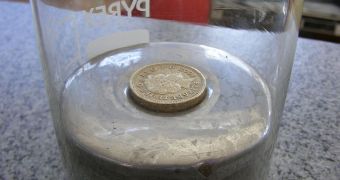The plan revealed by the Environmental Protection Agency (EPA), called The Mercury and Air Toxics Standards (MATS) aims to protect the American families from alarming levels of arsenic, acid gas, nickel, selenium, chromium, and cyanide.
The measures marks the beginning of hard times for major polluting power plants and also reveals health and economic benefits of up to $90 billion (€68.99bn), obtained every year once new rules are implemented, Green Technology World informs.
EPA officials note that every dollar invested to curb the amount of toxic emissions will bring $9 (€6.89) in health benefits.
The new standards meant to slash alarming emissions coming from polluting companies will prevent 11,000 premature deaths and 4,700 heart attacks a year, according to the agency.
Mercury emissions are a disrupting factor affecting especially the development of pregnant women and children and correlated with cancer, asthma and heart diseases.
The pollution control strategy drawn up by EPA is already effective and displaying encouraging results in half of the 1,100 coal-burning power plants in the US.
Surprisingly, the Mercury and Air Toxics Standards aiming to keep pollution levels under control will also create jobs.
In order to comply with the new measures, pollution power plants will be forced to install new equipment and invest in a series of improvements that require the presence of qualified staff.
EPA estimated that these beneficial changes would trigger the creation of 8,000 long-term utility jobs and other 4,000 short-term jobs in the construction sector.
Officials from the agency said the implementation of the new mercury standards is considered a great victory with noticeable environmental benefits, since more than 75% of the acid gas emissions and half of the mercury concentration disrupting the balance of American citizens.
“These standards mean power plants will invest in modern pollution controls, and that investment will create jobs, cleaner air and better public health.[...]The technology works, the lights have stayed on, mercury pollution has been reduced and children’s health is better protected,” explained Howard Learner, from the Environmental Law & Policy Center.

 14 DAY TRIAL //
14 DAY TRIAL //